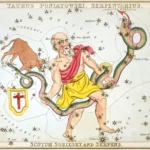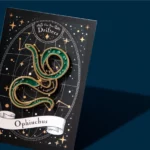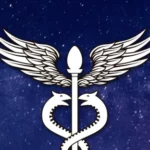In the realm of Greek mythology, there exists a captivating tale that revolves around the enigmatic figure of Asclepius and his transformation into the celestial constellation known as Ophiuchus. This captivating story unfolds the birth, lineage, and remarkable healing abilities of Asclepius, as well as his rise to fame and eventual wrathful encounter with Zeus. From his divine parentage to the association with healing serpents, Asclepius’ legacy and symbolism continue to resonate in the realm of medicine. Join us on this mythical journey as we delve into the captivating story of Asclepius: Ophiuchus in Greek Mythology.
Contents
- Asclepius: Birth and Lineage
- Asclepius: The Healing Abilities
- Asclepius: The Rise to Fame
- Ophiuchus: The Serpent Bearer
- The Wrath of Zeus
- Legacy and Symbolism
- Conclusion
-
Frequently Asked Questions
- 1. What role did Apollo play in the birth of Asclepius?
- 2. Who raised Asclepius during his formative years?
- 3. Did Asclepius have any siblings?
- 4. What were the healing abilities of Asclepius?
- 5. How did Asclepius acquire his healing skills?
- 6. Did Asclepius have any children?
- 7. What role did Apollo play in Asclepius’ rise to fame?
- 8. How did Asclepius treat diseases?
- 9. What is the story behind Asclepius’ transformation into a constellation?
- 10. What is the symbol associated with Asclepius?
- References
-
Frequently Asked Questions
- FAQs about Asclepius: Ophiuchus in Greek Mythology
- 1. What is Asclepius known for in Greek mythology?
- 2. Who were Asclepius’ parents?
- 3. Did Asclepius have any siblings?
- 4. How did Asclepius acquire his healing abilities?
- 5. Who were Asclepius’ daughters and what were they known for?
- 6. How did Asclepius gain divine aid from Apollo?
- 7. How did Asclepius treat diseases in Greek mythology?
- 8. How is Asclepius associated with the constellation Ophiuchus?
- 9. What is the significance of the rod of Asclepius?
- 10. How has Asclepius influenced the field of medicine?
- References
- Read More
Asclepius: Birth and Lineage
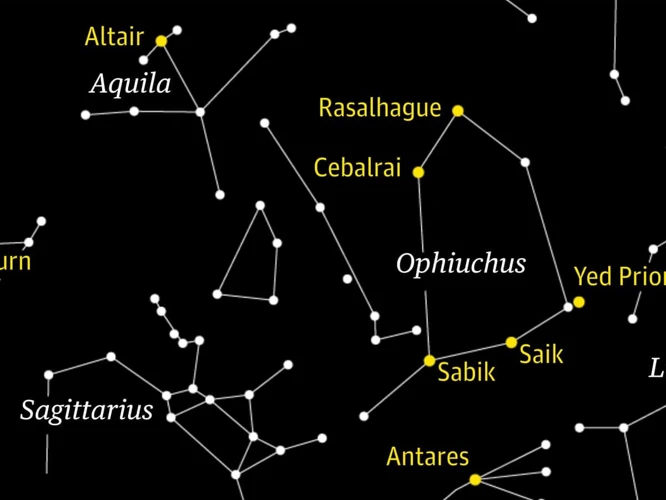
Asclepius, the central figure in Greek mythology, was born into a lineage of great importance and divine heritage. His father was Apollo, the god of healing, music, and prophecy, while his mother was the mortal woman named Coronis. This unique blend of mortal and immortal bloodlines bestowed upon Asclepius immense power and wisdom. However, his birth was not without its challenges and moments of despair. Before Asclepius came into the world, his mother fell in love with a mortal man named Ischys. Learning about her betrayal, Apollo became consumed with rage and sent his sister Artemis to punish Coronis for her infidelity. Artemis shot Coronis with her arrows, causing her to perish. Yet, before her untimely demise, Apollo rescued the unborn Asclepius and entrusted him to the care of the wise centaur Chiron, who would play a crucial role in shaping his destiny. The birth and lineage of Asclepius serve as the foundation for his remarkable abilities and ultimately, pave the way for his incredible journey.
1.1 Divine Parentage
The divine parentage of Asclepius plays a crucial role in shaping his extraordinary abilities and status in Greek mythology. As the son of Apollo, the god of healing, music, and prophecy, and the mortal woman Coronis, Asclepius inherits a unique blend of both mortal and immortal traits. The union between Apollo and Coronis represents the coming together of divine and human realms, symbolizing the potential for extraordinary healing and wisdom. Apollo’s association with healing and medicine sets the stage for Asclepius to inherit his father’s innate talents and become a renowned healer himself. His divine parentage not only grants him immense power but also carries the weight of expectation and the responsibility to utilize his abilities for the benefit of humanity. The lineage of Asclepius serves as a testament to the interconnectedness of gods and mortals, and the divine gifts that can be bestowed upon extraordinary individuals.
1.2 Asclepius and His Siblings
Asclepius, although revered for his exceptional abilities, was not the only child of Apollo and Coronis. He had several siblings, each with their own unique roles and significance in Greek mythology. One of his notable siblings was Orpheus, the legendary musician and poet known for his mesmerizing melodies that could move even the gods themselves. Orpheus possessed an unparalleled talent that allowed him to charm all living creatures, including wild beasts. Another prominent sibling was Artemis, the goddess of the hunt and the moon. Artemis held a deep connection with nature and was often depicted as a protector of the wilderness and its inhabitants. Asclepius had a sister named Eileithyia, who was the goddess of childbirth and labor pains. She played a crucial role in ensuring safe deliveries for women and aided in the progression of life. These siblings of Asclepius, with their diverse talents and domains, added depth and richness to the tapestry of Greek mythology. Their stories intertwine, creating a captivating narrative that explores the complexities and intricacies of the divine world.
Asclepius: The Healing Abilities
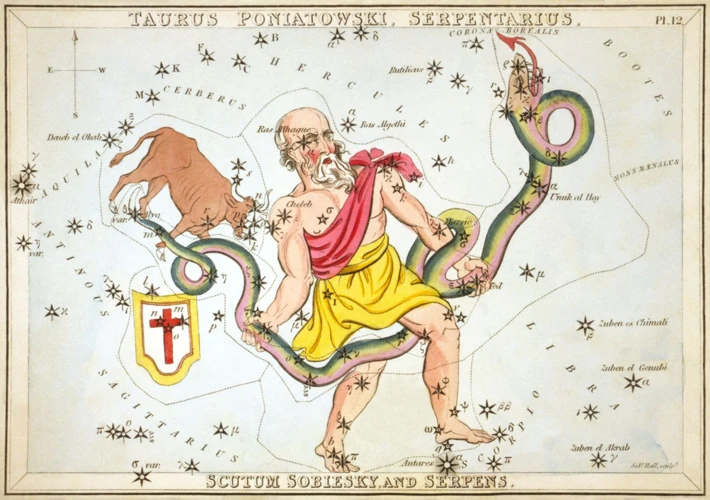
Asclepius, blessed with his divine lineage, possessed extraordinary healing abilities that set him apart from ordinary mortals. His time spent under the guidance of Chiron the centaur and Apollo, the god of healing, allowed him to harness immense knowledge in the field of medicine. Asclepius became a skilled practitioner, well-versed in the art of herbal medicine, surgery, and the use of various healing techniques. He dedicated his life to alleviating the suffering of others, earning a reputation as a renowned healer throughout Greece. As word of his miraculous abilities spread, people from far and wide sought his aid, desperate for a remedy to their ailments. Asclepius became particularly renowned for his ability to resurrect the dead, a power that even caught the attention of Hades, the god of the Underworld. The healing abilities of Asclepius were not limited to physical ailments alone, as he also possessed great wisdom in healing the minds and souls of individuals. His compassionate and holistic approach to healing brought solace and rejuvenation to countless individuals in need.
2.1 The Training of Asclepius
The training of Asclepius was an integral part of his journey towards becoming a renowned healer in Greek mythology. Under the guidance of the wise centaur Chiron, Asclepius honed his skills and developed a deep understanding of the art of medicine. Chiron, known for his vast knowledge and expertise in various disciplines, imparted his wisdom upon the young Asclepius, teaching him the secrets of herbal remedies, the power of observation, and the importance of compassion in healing. Asclepius showed immense dedication and a natural aptitude for medicine, swiftly grasping the teachings of his mentor. He studied the healing properties of various plants and their effects on different ailments, mastering the intricate art of using natural remedies to alleviate suffering. Chiron also introduced Asclepius to the power of dreams as a means of understanding and predicting diseases. Asclepius delved deep into the realms of knowledge, learning to interpret divine messages through dreams and visions, which would later become a significant aspect of his healing practices. The training of Asclepius under the tutelage of Chiron laid the foundation for his extraordinary capabilities and set him on the path to becoming one of the most revered healers in Greek mythology. To this day, the legacy of Asclepius serves as an inspiration for those in the medical field, as his story embodies the importance of knowledge, compassion, and dedication in the pursuit of healing.
2.2 Asclepius and His Daughters
Asclepius, the renowned healer of Greek mythology, not only possessed exceptional healing abilities but also had a close bond with his daughters, who inherited his knowledge and mastery of medicine. Asclepius had two daughters, named Hygieia and Panacea. Hygieia, whose name literally translates to “health,” was the goddess of cleanliness and preventive medicine. She emphasized the importance of maintaining good hygiene and adopting healthy habits to prevent illness and promote overall well-being. Panacea, whose name means “cure-all,” possessed the gift of finding solutions and remedies for different ailments, making her the goddess of universal remedies. Together, Hygieia and Panacea worked alongside their father, assisting him in his endeavors to heal the sick and wounded. Asclepius imparted his wisdom to his daughters, ensuring a legacy of healing and care that would extend beyond his own lifespan. Their contributions to the field of medicine and their dedication to the well-being of others are unparalleled. The bond between Asclepius and his daughters highlights the importance of family and lineage in the pursuit of knowledge and the continuation of healing traditions.
Asclepius: The Rise to Fame

Asclepius, with his innate healing abilities and wisdom, quickly rose to fame throughout the ancient world. Under the guidance of Chiron, Asclepius embarked on rigorous training and honed his skills in the art of medicine. He learned the secrets of herbs and potions, studied the stars for divine insight, and delved into the mysteries of anatomy. Word of his remarkable healing powers spread like wildfire, attracting people from far and wide seeking remedies for their ailments. Asclepius became renowned for his ability to cure the most challenging diseases, even those deemed incurable by others. His reputation grew exponentially, and soon people regarded him as a divine being. Asclepius was not only a skilled healer but also a compassionate and empathetic figure, offering solace and hope to those who crossed his path. His fame reached the heavens themselves, catching the attention of Apollo, his divine father, who decided to aid him in his endeavors. With Apollo’s guidance and divine support, Asclepius’ rise to fame was unstoppable. Whether it was the treatment of physical illnesses or the nurturing of emotional well-being, Asclepius became a symbol of hope, healing, and restoration in the ancient world. His influence and contributions to the realm of medicine and humanity endure to this day, reminding us of the power of compassion and knowledge in healing the body and soul. (For more information on Ophiuchus compatibility insights, check out this article.)
3.1 Divine Aid from Apollo
In the mythological realm, Apollo, the god of healing, played a pivotal role in Asclepius’ journey. As the divine father of Asclepius, Apollo provided his son with valuable aid and guidance, instilling within him the profound knowledge and skills associated with medicine and healing. Apollo bestowed upon Asclepius his sacred staff, which would later become the symbol of medicine, known as the Rod of Asclepius. This staff possessed remarkable healing properties and served as a powerful tool in the hands of Asclepius. With Apollo’s blessings and teachings, Asclepius discovered the secrets of medicine, developing unparalleled expertise in the art of healing. The divine aid from Apollo not only shaped Asclepius’ abilities but also propelled him into the limelight, gaining recognition as a revered figure in the realm of medicine. Apollo’s guidance and assistance were instrumental in Asclepius’ rise to fame and greatly contributed to the legacy that he would leave behind. To learn more about other historical figures and their contributions, you can read our article on historical Ophiuchus figures and their contributions.
3.2 Asclepius and the Treatment of Disease
Asclepius, with his divine lineage and innate healing abilities, became renowned for his remarkable treatments and cures for various diseases. People from far and wide sought his assistance, as he possessed an unmatched understanding of the human body and the power to bring about miraculous healing. Asclepius employed a comprehensive approach to medicine, combining physical remedies, such as herbal medicines and surgeries, with spiritual practices and psychological therapies. His techniques included the use of medicinal plants, poultices, and salves, as well as purifications, dream analysis, and therapeutic rituals. Asclepius believed in the interconnectedness of the body, mind, and spirit, focusing not only on alleviating physical symptoms but also on addressing the underlying emotional and spiritual causes of illness. Patients who sought the help of Asclepius would often spend time in his temples, participating in the sacred rituals and engaging in a deeply holistic healing process. It is said that Asclepius had a profound ability to diagnose and treat diseases that were considered incurable by others, earning him a reputation as the divine physician. His dedication to the healing arts and his unwavering commitment to the well-being of others left an indelible mark in the realm of medicine. Truly, Asclepius’ approach to the treatment of disease was both revolutionary and deeply compassionate, demonstrating his unparalleled understanding of the intricate relationship between the body, mind, and spirit.
Ophiuchus: The Serpent Bearer
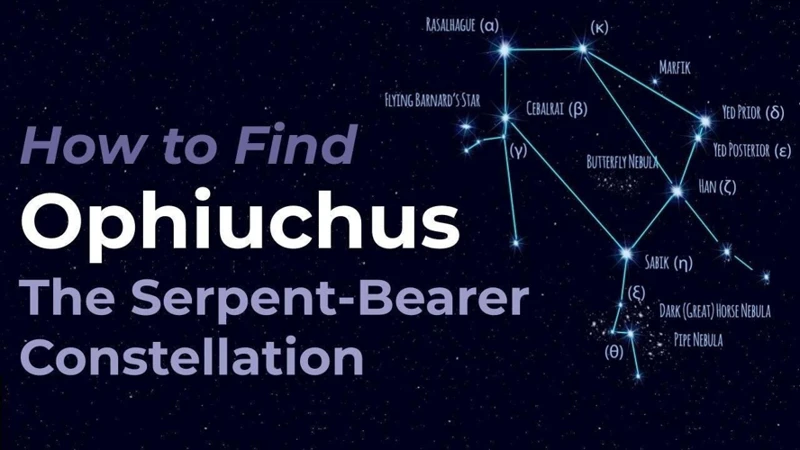
Ophiuchus, also known as Serpentarius, is a constellation in Greek mythology that embodies the figure of the serpent bearer. This constellation represents none other than Asclepius himself, the renowned healer and son of Apollo. Ophiuchus is depicted as a man holding a serpent, symbolizing Asclepius’ connection to medicine and healing. The association with serpents stems from a significant event in Asclepius’ life. Legend has it that while he was studying the art of healing from the centaur Chiron, Asclepius encountered a snake slithering nearby. Asclepius observed the snake carefully and witnessed it shedding its skin, a process symbolic of rejuvenation and healing. Inspired by this experience, Asclepius incorporated snakes into his medical practices, utilizing their venom for therapeutic purposes. The connection between Asclepius and serpents became deeply rooted, leading to his association with Ophiuchus and the symbol of the serpent bearer. To this day, Ophiuchus remains a symbol of healing and rejuvenation, serving as a reminder of Asclepius’ profound influence in the realm of medicine and the endless potential for growth and transformation. Discover the harmonious friendships of Ophiuchus individuals here.
4.1 Asclepius in Ophiuchus Constellation
When exploring the celestial realm, one cannot disregard the prominent presence of Asclepius in the Ophiuchus constellation. Asclepius, widely revered as the god of healing and medicine, is symbolically represented by the constellation Ophiuchus, also known as the “Serpent Bearer.” This constellation lies in the southern sky, traversing the celestial equator. Ophiuchus consists of a group of stars that form the shape of a man holding a serpent. The serpent itself is representative of the healing powers associated with Asclepius. The inclusion of Asclepius within the Ophiuchus constellation serves as a testament to his prestigious position in Greek mythology and his prominent role as the divine healer. The celestial alignment of Asclepius in Ophiuchus further emphasizes the significance of healing and restoration in both the physical and spiritual realms. It is a celestial tribute that immortalizes the legacy of Asclepius and his profound influence in the realm of medicine and wellness.
4.2 The Association with Healing Serpents
The captivating tale of Asclepius and his association with healing serpents adds a mystical element to his already extraordinary story. According to Greek mythology, Asclepius possessed the unique ability to communicate with and tame snakes, particularly those endowed with healing powers. One such serpent, known as the Asclepian snake, was believed to have been a sacred companion to Asclepius throughout his journey as a healer. These serpents were often depicted coiled around Asclepius’ staff, known as the Rod of Asclepius, which has become a symbol of medicine to this day. Legends tell of how these serpents would slither around patients, bringing forth rejuvenation and the remedies necessary for recovery. The association with healing serpents not only highlights Asclepius’ connection to the natural world but also underscores the mystical and transformative qualities of his healing abilities. This association with serpents solidifies Asclepius’ reputation as the god of medicine and makes him an iconic figure in the realm of healing and wellness.
The Wrath of Zeus
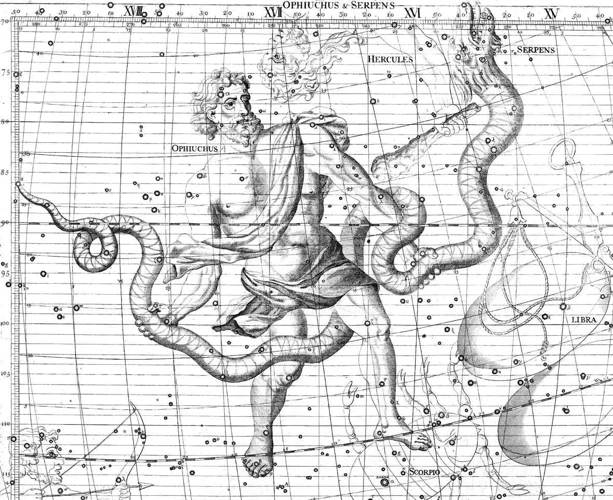
The wrath of Zeus, the king of the gods, had devastating consequences for Asclepius. It all began when Asclepius, in his quest to heal and save lives, became so skilled in the art of medicine that he could even restore life to the dead. This act of defying the natural order caught the attention of Zeus, who grew concerned about the balance between life and death. Outraged by Asclepius’ actions, Zeus struck him down with a thunderbolt, ending his mortal life. The death of Asclepius was a tragic blow to the world, as his healing abilities were unmatched. However, Zeus soon realized the significance of his actions and the impact it had on mortals who depended on Asclepius’ healing powers. In an act of remorse, Zeus transformed Asclepius into a constellation, placing him among the stars as the celestial figure of Ophiuchus, the serpent bearer. This divine punishment and subsequent transformation immortalized Asclepius, ensuring that his legacy would continue to shine brightly in the night sky. The wrath of Zeus serves as a reminder of the delicate balance between mortal and divine power, as well as the everlasting influence of Asclepius in the realm of healing.
5.1 The Death of Asclepius
The death of Asclepius marked a tragic end to his extraordinary life. According to Greek mythology, the demise of Asclepius was brought about by the wrath of Zeus, the king of the gods. The catalyst for Zeus’ anger was the audacity of Asclepius, who had the audacity to bring a mortal back to life. Asclepius had become a renowned healer, revered for his ability to revive the dead through his medicinal practices. This act of tampering with the natural order of life and death deeply infuriated Zeus, who believed that only he held the power over such matters. In his fury, Zeus unleashed his thunderbolts, obliterating Asclepius and ending his mortal existence. The death of Asclepius symbolizes the boundaries that mortals should not exceed and serves as a reminder of the consequences that can occur when challenging the gods’ authority. Despite his tragic end, the legacy of Asclepius and his healing abilities would continue to endure, immortalized in the constellation that bears his name.
5.2 Asclepius Transformed into a Constellation
In a tragic turn of events, the wrath of Zeus would ultimately lead to Asclepius’ transformation into a constellation. Asclepius had gained immense fame and respect for his unparalleled healing abilities, to the extent that his powers even surpassed those of the gods. This incited jealousy and fear among the divine beings, especially Zeus, who began to view Asclepius as a potential threat to the balance of power. In his rage, Zeus decided to take action and struck down Asclepius with a thunderbolt, putting an end to his existence on Earth. However, Zeus’ actions did not end there. It is said that Apollo pleaded with Zeus to honor his son’s incredible contributions to humanity. In recognition of Asclepius’ healing prowess and in an attempt to preserve his legacy, Zeus transformed Asclepius into a constellation, positioning him in the night sky for all eternity. The constellation Ophiuchus, representing the Serpent Bearer, serves as a cosmic testament to the remarkable life and tragic end of Asclepius, forever immortalizing his legacy in the heavens above.
Legacy and Symbolism
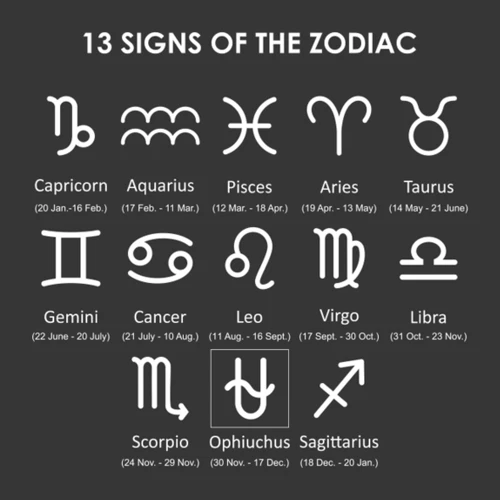
The legacy and symbolism of Asclepius continue to exert a profound influence in various aspects of life, particularly in the realm of medicine. One of the most enduring symbols associated with Asclepius is the Rod of Asclepius, which consists of a serpent entwined around a staff. This symbol, with its origins in ancient Greek mythology, has become widely recognized as a representation of healing and healthcare. It is often used to signify medical professions and organizations worldwide. The association between Asclepius and healing serpents further reinforces the significance of this symbol. According to mythology, Asclepius possessed the ability to heal the sick and even bring the dead back to life. It is said that he learned the art of medicine from both Chiron and his father Apollo, who bestowed upon him the knowledge and skills required for healing. Asclepius’ contributions to medicine were so remarkable that he became regarded as the patron deity of healing and medicine. The symbol of the Rod of Asclepius serves as a reminder of his tremendous healing abilities and his enduring legacy. Today, his influence can be seen in the Hippocratic Oath, a code of ethics that guides medical professionals in their practice. The principles of compassion, dedication, and care for the well-being of patients are deeply rooted in the teachings of Asclepius. His legendary status transcends time and continues to inspire and influence the field of medicine, reminding us of the power of healing and the importance of caring for others.
6.1 Asclepius Symbol: The Rod of Asclepius
The symbol closely associated with Asclepius is the Rod of Asclepius, which has become a universal symbol of healing and medicine. This symbol consists of a staff or rod, entwined by a single serpent. The origins of the Rod of Asclepius can be traced back to ancient Greek mythology, where Asclepius, as the god of healing, would carry a staff with a snake coiled around it. The serpent represents rejuvenation and healing, as snakes shed their skin, symbolizing renewal and transformation. The rod itself represents authority and power. Together, the Rod of Asclepius exemplifies the healing abilities and divine influence associated with Asclepius. This powerful symbol has endured throughout history and continues to be widely recognized in the field of medicine, serving as a reminder of the importance of healing and the enduring legacy of Asclepius.
6.2 Asclepius Influence in Medicine
The influence of Asclepius on the field of medicine is undeniable and far-reaching. As the god of healing, Asclepius has been revered as a symbol of medical knowledge and expertise. His legendary skills as a healer have inspired generations of physicians and medical practitioners. In ancient Greece, temples dedicated to Asclepius, known as Asclepieia, were built as places of worship and healing. These temples housed sacred snakes, which were believed to bring healing and renewal. Pilgrims would flock to these temples seeking cures for their ailments and would undergo various rituals and treatments in the hopes of receiving divine intervention. This fusion of spirituality and medicine was a significant aspect of Asclepius’ influence. The methods employed in these temples included utilizing herbs, therapeutic baths, dream analysis, and even surgical techniques. The practices and knowledge developed within these temples laid the groundwork for the future of medical practices. Asclepius’ influence extended beyond the temples as well. His symbol, the Rod of Asclepius, a serpent entwined around a staff, has become an iconic emblem of medicine worldwide. It represents healing, wisdom, and the power of transformation. The legacy of Asclepius in medicine continues to be honored and celebrated, reminding us of the intertwining relationship between spirituality, healing, and the pursuit of medical knowledge.
Conclusion
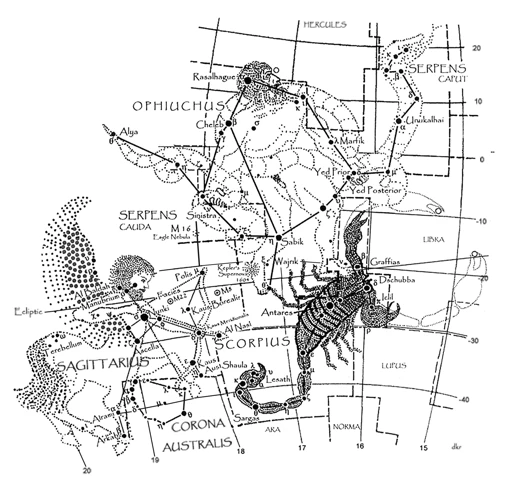
In conclusion, the story of Asclepius: Ophiuchus in Greek Mythology is a captivating tale that showcases the extraordinary abilities and journey of a remarkable figure. From his birth and divine parentage to his ascension as the god of healing, Asclepius leaves an indelible mark in Greek mythology. His association with the constellation Ophiuchus and the symbol of the Rod of Asclepius further solidify his legacy as a powerful healer and patron of medicine. The wrath of Zeus and the transformation of Asclepius into a constellation serve as a reminder of the delicate balance between mortal and immortal realms. Throughout the ages, Asclepius’ influence continues to be felt in medicine, symbolizing the eternal pursuit of healing and well-being. Whether one resonates with the mythical aspects of Asclepius or acknowledges his influence in the field of medicine, his story remains a testament to the power of healing and the eternal quest for knowledge in the realm of health and well-being.
Frequently Asked Questions
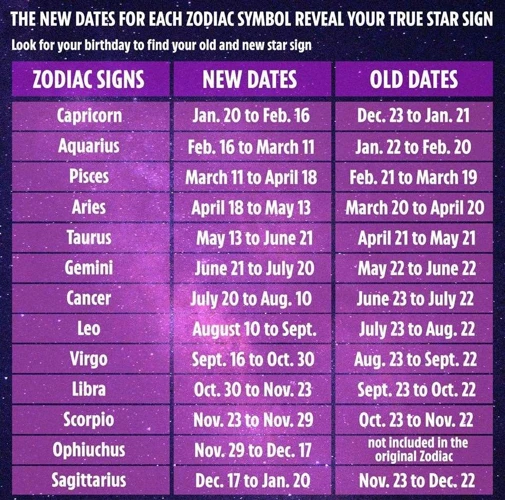
1. What role did Apollo play in the birth of Asclepius?
Apollo, the god of healing, music, and prophecy, was the father of Asclepius. He played a vital role in the birth of Asclepius by rescuing him from his mother’s womb after she was struck by Artemis’ arrows.
2. Who raised Asclepius during his formative years?
During his formative years, Asclepius was raised by the wise and noble centaur named Chiron. Chiron imparted his vast knowledge and taught Asclepius the art of healing.
3. Did Asclepius have any siblings?
Yes, Asclepius had several siblings. His notable siblings include Ion, a prince and progenitor of the Ionian Greeks, and Aratus, a renowned Greek poet.
4. What were the healing abilities of Asclepius?
Asclepius possessed extraordinary healing abilities. He could cure various ailments, diseases, and even raise the dead. His reputation as a remarkable healer spread far and wide.
5. How did Asclepius acquire his healing skills?
Asclepius acquired his healing skills through extensive training under the guidance of the centaur Chiron. Chiron taught him the art of medicine, medicinal herbs, and the secrets of healing.
6. Did Asclepius have any children?
Yes, Asclepius had several children. His notable daughters included Hygieia, the goddess of health, and Panacea, the goddess of universal remedy.
7. What role did Apollo play in Asclepius’ rise to fame?
Apollo played a significant role in Asclepius’ rise to fame by providing him with divine aid and guidance. Asclepius’ skills as a healer were enhanced through Apollo’s teachings and blessings.
8. How did Asclepius treat diseases?
Asclepius treated diseases through a combination of medicinal herbs, surgical procedures, and divine intervention. He believed in a holistic approach to healing, addressing both physical and spiritual aspects.
9. What is the story behind Asclepius’ transformation into a constellation?
After his death, Asclepius was transformed into a constellation by Zeus as a way to honor his contributions to medicine and healing. He became the constellation known as Ophiuchus, the Serpent Bearer.
10. What is the symbol associated with Asclepius?
The symbol associated with Asclepius is the Rod of Asclepius. It consists of a single serpent wrapped around a staff and is widely recognized as a symbol of healing and medicine.
References
Frequently Asked Questions

FAQs about Asclepius: Ophiuchus in Greek Mythology
Here are some frequently asked questions about the story of Asclepius and the representation of Ophiuchus in Greek mythology:
1. What is Asclepius known for in Greek mythology?
Asclepius is known as the Greek god of healing and medicine. He possesses incredible healing abilities and is often depicted with a staff entwined by a serpent.
2. Who were Asclepius’ parents?
Asclepius’ father was Apollo, the Greek god of music, poetry, prophecy, and healing. His mother was Coronis, a mortal woman who unfortunately met a tragic fate.
3. Did Asclepius have any siblings?
Yes, Asclepius had several siblings. Some of his well-known siblings include Artemis, the goddess of the hunt, and Apollo’s twin sister; and Hermes, the messenger of the gods.
4. How did Asclepius acquire his healing abilities?
Asclepius received his training in the art of healing from Chiron, a centaur who was renowned for his wisdom and knowledge of medicine. Under Chiron’s guidance, Asclepius honed his healing skills.
5. Who were Asclepius’ daughters and what were they known for?
Asclepius had two daughters named Hygieia and Panacea. Hygieia was the goddess of health, cleanliness, and sanitation, while Panacea was the goddess of universal remedy and healing.
6. How did Asclepius gain divine aid from Apollo?
Asclepius was greatly favored by his father Apollo, who taught him the secrets of medicine and healing. Apollo even gifted Asclepius with the staff entwined by a serpent, which became a symbol of healing.
7. How did Asclepius treat diseases in Greek mythology?
According to myths, Asclepius employed various methods to treat diseases. These included the use of herbal medicines, therapeutic baths, and even surgeries. His skills were so exceptional that he could even bring the dead back to life.
8. How is Asclepius associated with the constellation Ophiuchus?
Ophiuchus is often associated with Asclepius due to their common association with healing and serpents. Asclepius’ exceptional healing abilities led to his depiction as a constellation, which became known as Ophiuchus.
9. What is the significance of the rod of Asclepius?
The rod of Asclepius, a staff entwined by a serpent, is a symbol commonly associated with medicine and healthcare. It represents the healing powers associated with Asclepius and is widely recognized as a symbol of medicine.
10. How has Asclepius influenced the field of medicine?
Asclepius’ influence in medicine extends beyond Greek mythology. His ideals of healing, compassion, and the pursuit of medical knowledge have greatly influenced the principles and practices of modern medicine.




